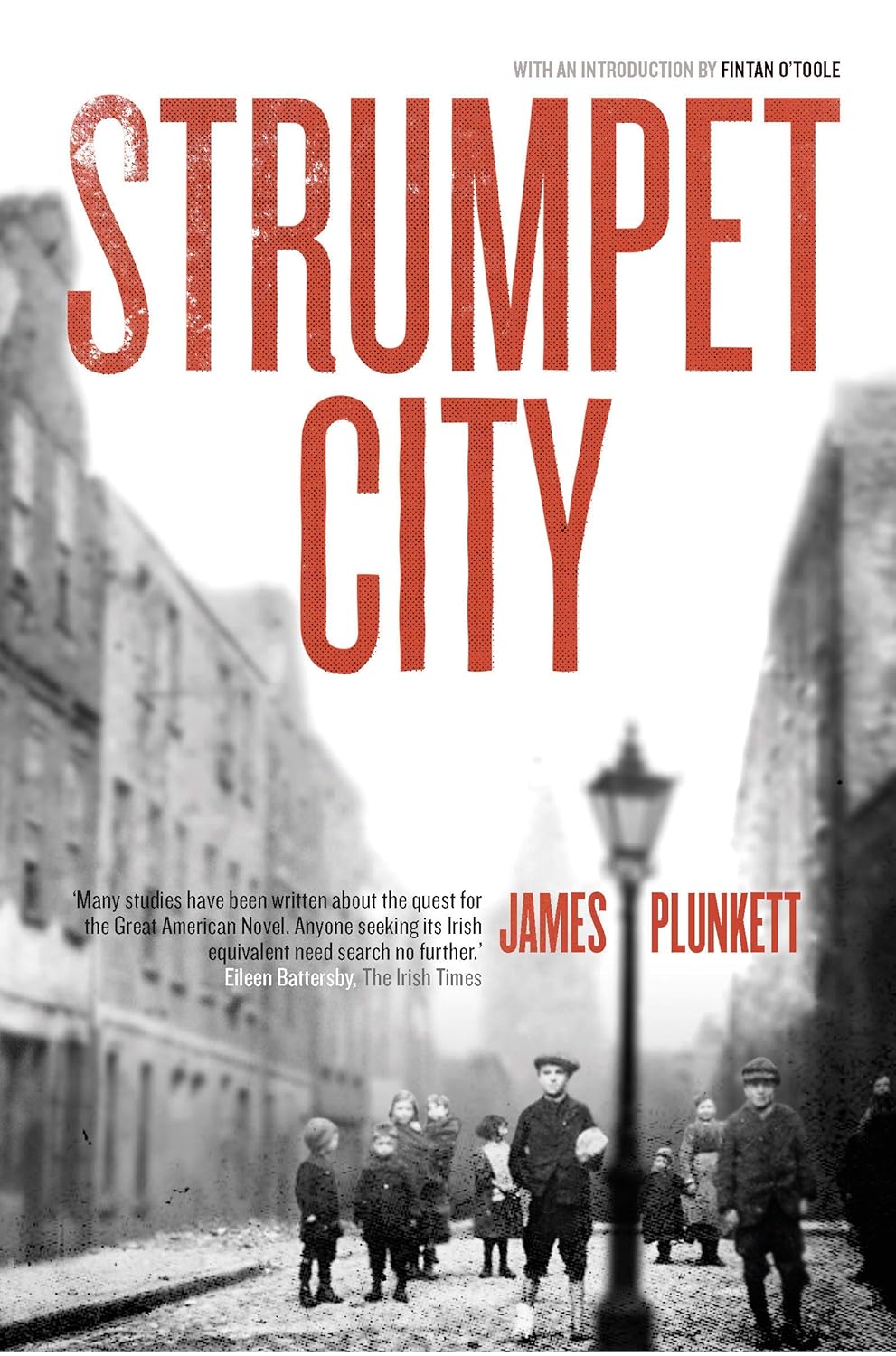
Strumpet City: One City One Book Edition
FREE Shipping
Strumpet City: One City One Book Edition
- Brand: Unbranded

Description
The characters in the novel represent both sides of the divide. Even so, as in all good novels, opinions are not quite so clear cut. Some of the upper classes do try to help the poor and of course some of the poor are only half-hearted in their support of the strikers, desperate as they are for work. first published in 1969, is the greatest Irish historical novel is to risk damning it with faint praise. Ireland has no Walter Scott, no
We are all living in our own strumpet cities with politicians promising us heaven when they give us hell. General Tom Barry’s Cork No. 3 (West Cork) Brigade wiped out an eighteen-man Auxiliary patrol at Kilmichael, on the Macroom–Dunmanway road, Co. Cork. Where Strumpet City does stumble somewhat is in its dramatic construction. My understanding is that this was RTE's (Radio Telefis Eireann, the public service broadcaster of the Republic of Ireland) first major TV production. Up until Strumpet City, most of RTE's output was of an extremely limited scope, due mostly to budgetary concerns. Strumpet City does have a rich look to it, despite its rather limited budget. Authentic locales are used, and there's a concerted effort to make the production design authentic to the period. However, there is a sense, particularly in the haphazard editing, that too much story was attempted (even for the six hour running time), and that much scrambling was made during the final hour to wrap up the various plot threads. Certainly the most agonizing subplot of Strumpet City is the fate of Rashers Tierney (a heartbreaking David Kelly), a destitute odd jobber whose only companion is his little dog. The film takes great care in showing the inevitable downward spiral of Rashers (who was already at the bottom to begin with); his descent to a most horrifying death is painstakingly chronicled, but when it comes time to actually show Rashers' final moments, we get a badly inserted jump cut, lasting a few seconds, that utterly ruins the overall effect that the filmmakers had tried to achieve with the character. He's essentially thrown away in the film's mad dash to sew up all the loose ends.
See also
Strumpet City was a 1980 television miniseries produced by Irish broadcaster RTÉ, based on James Plunkett's 1969 novel Strumpet City. [1] [2] [3]
is, above all, a great defiance of this contempt for the poor. Its realism is not just a reflection of the way things were: it is also a statement of the way things should be, that attention must be paid to those whom history treats as the anonymous masses. We might give what he is doing the name of defiant realism. James Plunkett Kelly, or James Plunkett (21 May 1920 – 28 May 2003), was an Irish writer. He was educated at Synge Street CBS. But the Soviet visit had one good outcome – it helped Plunkett resolve to leave the union job and to seek full-time work with Radio Eireann. During the early 1950s he had begun contributing talks, short stories and plays to the station (having earlier played for a time with its Orchestra) and in 1955 he applied for and got a full time staff post there as Assistant Head of Drama and Variety. He found himself an intellectual atmosphere led by people he said had “culture and integrity”. The Head of the Drama and Variety department was Michael O'hAodha and others there included novelists Francis Mac Manus and Philip Rooney and poet Roibeaird O'Farachain.Rashers Tierney, in lesser hands, could have been merely the embodiment of the horror of near absolute poverty. He is utterly destitute, despised and bullied by officialdom. He occupies the margins of life and of history, too poor even for the collective self-assertion of the workers. He is reduced almost to the level of his friend and equal Rusty, his beloved dog. He is King Lear’s “unaccommodated man . . . a poor, bare, forked animal”. a b Freitag, Barbara (1 January 1995). "Literature rewrites history: James Connolly and James Larkin Larger than Life". In Leerssen, Joseph Theodoor; Weel, Adriaan van der; Westerweel, Bart (eds.). Forging in the Smithy: National Identity and Representation in Anglo-Irish Literary History. International Association for the Study of Irish Literatures (IASIL) Leiden 1991: Volume 1 of The Literature of Politics and the Politics of Literature. Costerus New Series. Vol.98. Rodopi. p.243. ISBN 978-90-5183-759-9 . Retrieved 24 May 2015. The Sinn Féin movement—the name famously coined by Máire Butler, a cousin of Irish unionist leader Sir Edward Carson—was launched by Arthur Griffith with the aim of re-establishing the independence of Ireland by withdrawing from the Westminster parliament and setting up a government in Dublin. plays down militant nationalism, confining its expression largely to the old cook, Miss Gilchrist) and anti-clerical. Readers of I am wise enough to know now that these things were not 'of the past'; they are just as relevant today and if you look around you will find a Rashers Tierney existing not so far from where you live.
- Fruugo ID: 258392218-563234582
- EAN: 764486781913
-
Sold by: Fruugo
